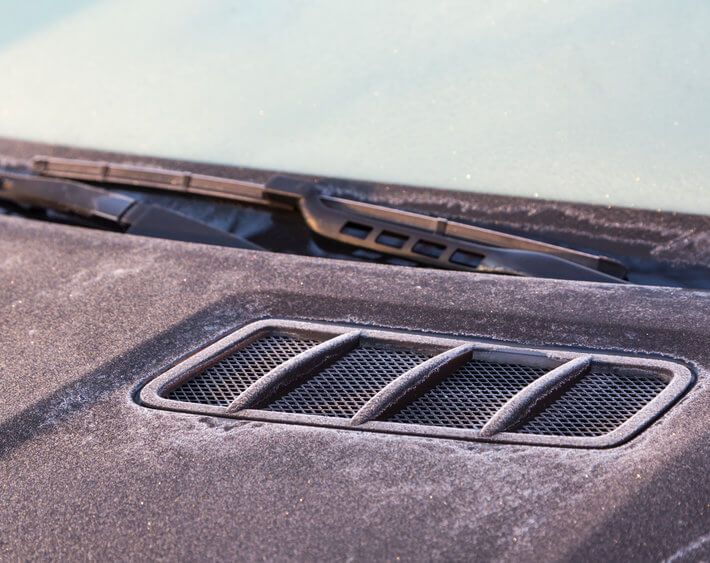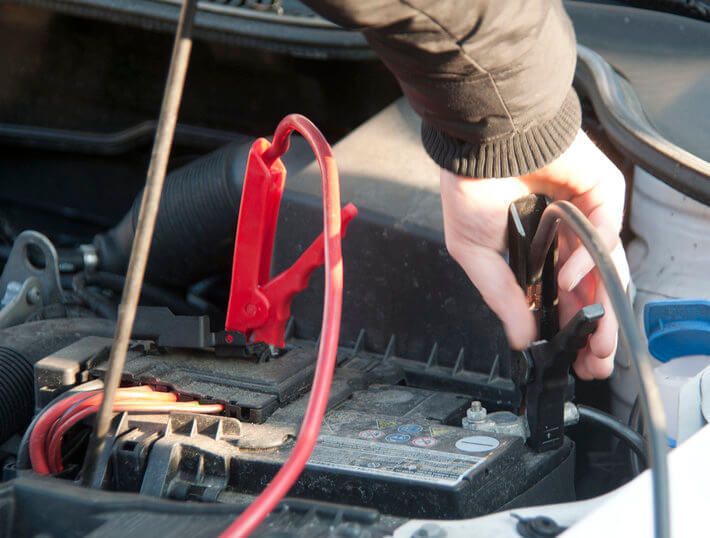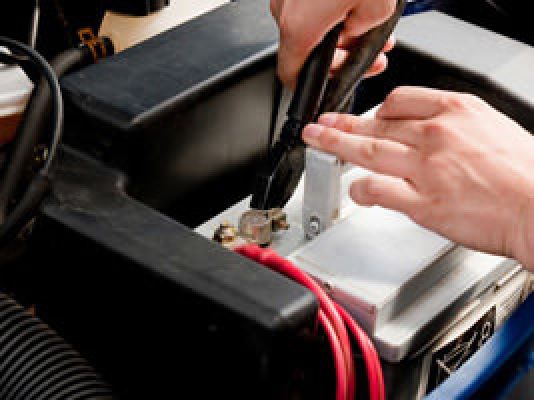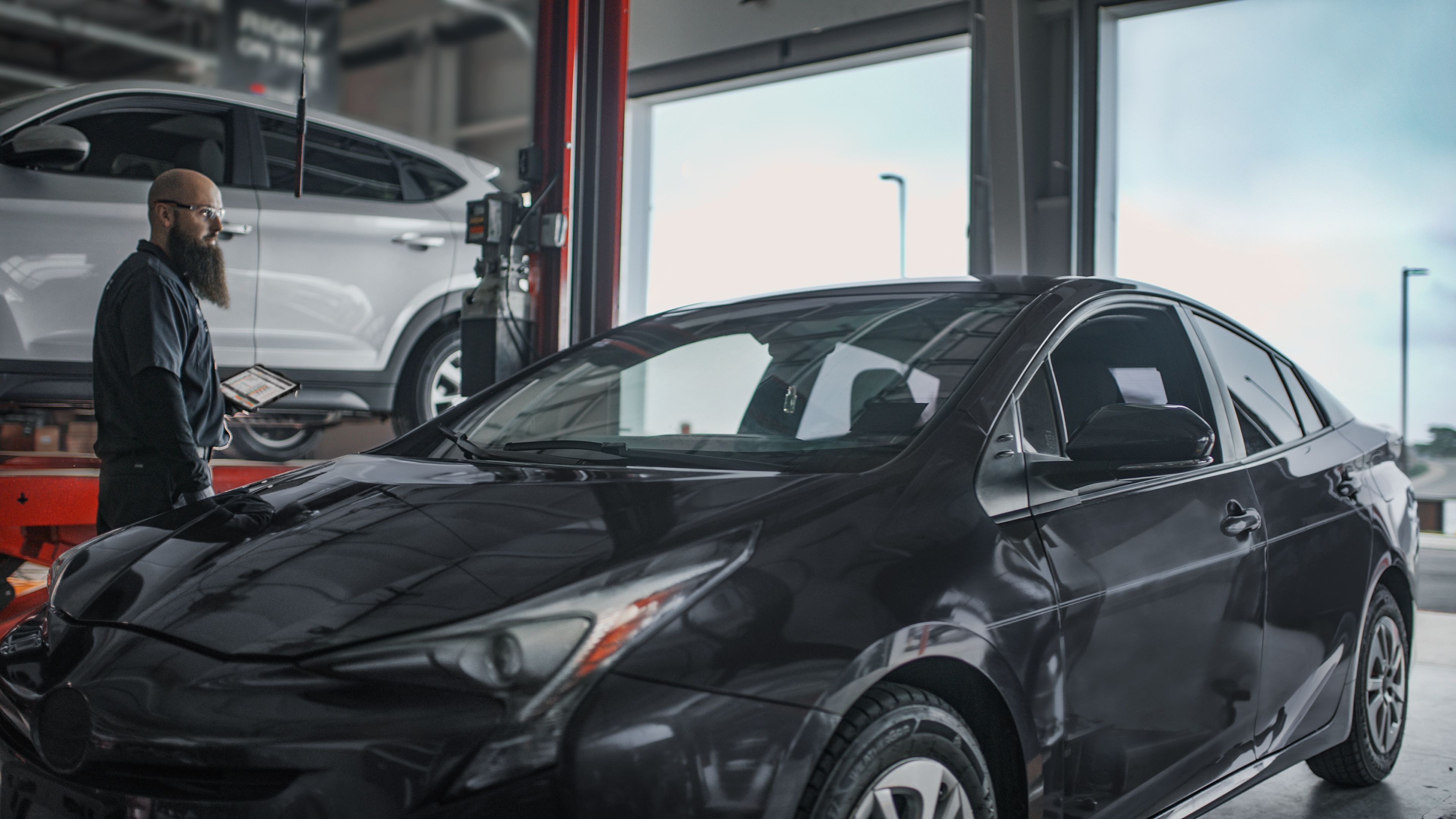If you’re like most people, you don’t like leaving the house when your cell phone battery is almost dead. What if you miss a text? Your phone dies while you're using your GPS? What if you can't stream your favorite songs? Or, what if your car won't start and you have to take off one of your socks to flag down a coworker in the parking lot?! OK, so maybe that last one is a little extreme, but it's actually a scenario we can help prevent.
While you always know how much juice is left in your phone's battery, you probably don’t know how much is left in your car's battery – the battery that could actually leave you stranded, especially when cold weather hits. Summer's heat puts major strain on your battery and could leave you with an already-depleted one come winter. While the season's first frost looks lovely on the golden-brown leaves falling in your front yard, it could be the final straw for your dear old battery. With these tips and tricks, though, you can help keep your battery charged all winter long!
Park your car in the garage, away from the wind.
If you’ve ever gotten slapped by a gust of cold wind, you have a general idea of how your car feels in the cold too. Parking your car in the garage at night can help protect the battery, even if just a bit. And if you have easy access to an outlet, take an extra step to protect your battery's cranking power by using an electric battery blanket. Don't have a garage? Park the front of the car away from the main direction of the wind.
Pause before turning on accessories.
When you hop into your car on a frosty day, it can be tempting to crank up the heat, flick on your lights, and turn on the radio immediately. Instead, wait a minute. Let your alternator charge the battery before placing any demands on it. Likewise, turn off anything that may require battery power before leaving your car. Each time you turn your ignition, energy from the battery zips to your motor to get things started, but power is also sent to various systems you may have left on when you last drove. On a cold day, these extra demands can zap your battery faster than the average IndyCarⓇ Series pit stop!
Juice it up!
Typically a fully charged battery will not freeze until -76°F. A fully discharged battery could start to freeze around 32°F, though, so give it some juice if your car is hesitating to turn over. Check out Jump Starting a Car and Other Battery Tips for a quick rundown of what to do, and not do, when charging your battery.
Keep your battery free of dirt and debris.
Low temperatures increase electrical resistance and thicken engine oil, making the battery work harder. Dirt, grime, and corrosion on your battery terminals can add to this resistance. If you notice a white powder around the terminals that looks something like dead skin on dry winter hands, you've got a case of corrosion. Luckily, you don’t need a special cleaning spray or fancy tools to freshen things up. Keep your battery sparkling with a damp cloth, some baking soda, water, and a toothbrush. Strangely enough, Reader's Digest recommends smearing petroleum jelly on the terminals once they're clean. The jelly helps prevent corrosion to keep the battery cranking all season long.
Get your battery checked before winter hits.
If your battery is near death, it’s much better to find out on your own schedule than when you're busy with the demands of daily life. While these tips can help extend your battery's charge through the change in seasons, there’s nothing better than starting the winter with a healthy battery. Firestone Complete Auto Care offers completely free battery checks so you can have peace of mind and a strong new battery before winter arrives.
Find your nearest Firestone Complete Auto Care location and stop by for a quick battery check. Get your battery taken care of when it's convenient, not when it's an emergency!



